Valley Bounty: Makes sense, saves cents: Local CSA programs advantageous for farms and consumers
| Published: 02-28-2025 10:18 AM |
For local farmers, winter is a time for planning the next growing season, catching up on small business tasks, and maintaining structures and equipment. For the local community, winter is the time to lock in prices on produce for the growing season by signing up for Community Supported Agriculture (CSA) membership.
Dave DiLorenzo is the owner/operator of Stone Soup Farm, which is located at 81 Rocky Hill Rd. in Hadley. The small, organic farm follows a CSA model, where neighbors buy farm shares ahead of the summer season, and then pick up vegetables at the farm for 20 weeks from June to October. This is the only way to purchase vegetables from Stone Soup Farm; they do not operate a farm stand.
January through March is the optimal time for members to sign up for summer farm shares across the Valley. Because farmers purchase seeds and inputs over the winter, the expenses precede sales of product by many months, leaving a gap in income.
“I think the CSA model is good for farms by helping with capital at the beginning of the year without the farm taking a loan and paying interest,” DiLorenzo says. “Typically, 99% of farming in the U.S. gets financed for a season through loans. As people buy CSA shares ahead of time, it steadies our income, functioning like an interest-free microloan. This is a true advantage for the farm.”
DiLorenzo says the CSA model “is advantageous for the consumer because they get a better price locked in for the growing season, no matter what happens in the larger market. For example, food prices went up a lot in 2021-2022, but our CSA share price stayed the same. Whatever the member pays in January is the price they pay for their vegetables received in July. Year-to-year, prices may creep up as our costs increase, but there aren’t huge, unexpected price jumps for the consumer during the season.”
DiLorenzo explains that CSA pricing is generally more favorable for the customer. “The CSA price that the customer pays for produce is in between wholesale and retail pricing. The farmer gets a higher price than when selling wholesale, and the consumer gets a lower price than if they were paying retail.”
As high grocery costs make the news, the CSA model makes sense.
“The typical way that produce is sold in grocery stores involves a distributor who sells to a grocery store, and then the grocery store sells it to the person,” DiLorenzo says. “You’re cutting out two links in the chain – both the distributor and the grocery store – by buying directly from the farm, so produce costs less with this model.”
Article continues after...
Yesterday's Most Read Articles
 Northampton Housing Authority boss placed on leave
Northampton Housing Authority boss placed on leave
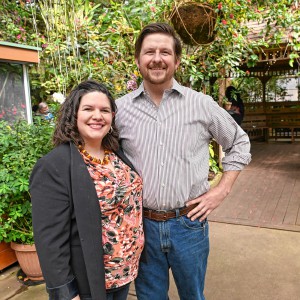 Hopeful buyers emerge for Magic Wings butterfly conservatory in South Deerfield
Hopeful buyers emerge for Magic Wings butterfly conservatory in South Deerfield
 UMass Chancellor Reyes outlines changes amid financial uncertainty under Trump administration
UMass Chancellor Reyes outlines changes amid financial uncertainty under Trump administration
 Ready to roll on roads: Amherst priority list tees up $4.55M to rebuild some of town’s worst stretches
Ready to roll on roads: Amherst priority list tees up $4.55M to rebuild some of town’s worst stretches
 UMass hockey: Minutemen fall to Western Michigan, 2-1, in Fargo Regional final
UMass hockey: Minutemen fall to Western Michigan, 2-1, in Fargo Regional final
 Amherst School Committee OK’s budget with no classroom layoffs, but spending plan is $500K more than town recommends
Amherst School Committee OK’s budget with no classroom layoffs, but spending plan is $500K more than town recommends
With the CSA model, consumers share some of the risk inherent to farming because of the uncertainty of weather each year. Farming in the area since 2009, DiLorenzo has seen winter weather change over the last 10 years. “I definitely have noticed a big difference in the last five-to-10 years. It’s just not that cold anymore. In New England, it’s gotten a lot warmer in the last 10 years and it’s obviously just going to keep getting warmer. We get some cold snaps, but we are able to grow winter spinach in some unheated greenhouses now,” he says.
As New England weather changes, DiLorenzo says, “You always have to be able to water. It used to be possible to rely on rain in the summer, but now you really need to have a way to water your crops. You never know when it might not rain for a month or more. That didn’t really used to be possible.”
In the growing season, Stone Soup Farm grows most of the vegetables that can be grown in Massachusetts. DiLorenzo includes “lots of leafy greens, hot crops like tomatoes, peppers, eggplant, and fall roots, like potatoes and sweet potatoes” in Stone Soup farm shares. The farm also drops off shares weekly to sites in the Boston area.
For crops that do not grow well on his land, like corn and watermelon, DiLorenzo adds favorites from neighboring farms. For instance, he sources organic corn from Warner Farm in Sunderland.
Beyond supplementing farm shares, relationships are the roots of Stone Soup Farm. Stone Soup Farm participates in Community Involved in Sustaining Agriculture’s (CISA) Senior FarmShare Program. CISA subsidizes most of the cost of small farm shares for low-income seniors, so recipients pay a minimal cost, and the farmer gets paid fully for the shares.
The program has grown steadily over the years; in 2024, it served 800 seniors in partnership with 18 farms and 21 sites throughout Franklin, Hampshire and Hampden counties. Since 2008, Stone Soup Farm has participated in the program with delivery of produce to The Urban League of Springfield. The farm added a second site in 2016, which now distributes at the North End Senior Center.
“We deliver produce for almost free to the city,” DiLorenzo says. “It’s similar to the normal CSA program and runs 10 weeks, during the middle of the summer when we have the most abundant variety. It’s all the best, most popular stuff of the season.”
Both on his farm and within the Senior FarmShare programs, DiLorenzo finds CSA members supportive and grateful. “People send me really nice emails or handwritten cards. Some people have participated in our shares for 10 years or more, and I really appreciate them. Every now and then I wonder if this really matters, and then people let me know it definitely does,” he says.
For more information on CSA shares through Stone Soup Farm, see their website at www.stonesoupfarmcoop.com or their social media on Facebook and Instagram.
Lisa Goodrich is a Communications Coordinator for Community Involved in Sustaining Agriculture (CISA). For more information on where to find a CSA near you, check CISA’s online guide at https://tinyurl.com/2025CSAs.

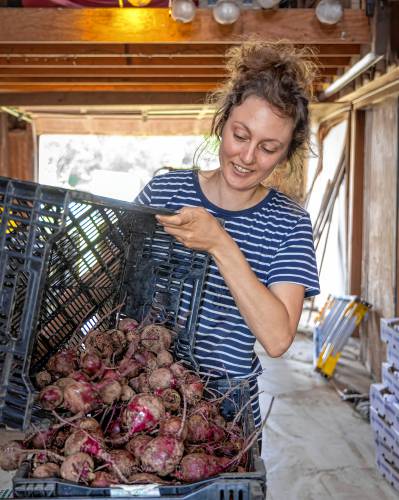
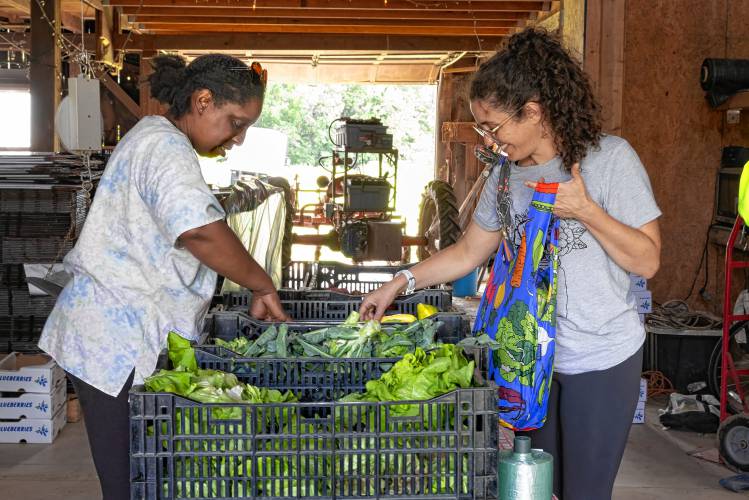
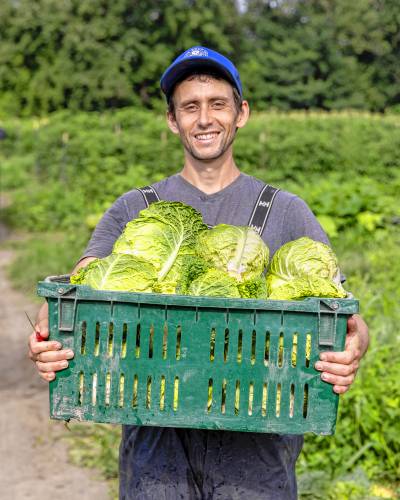
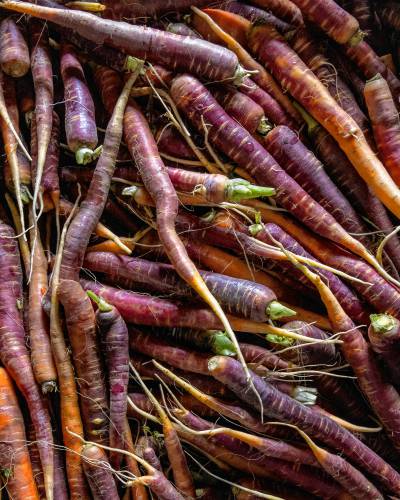





 Historic speech echoes two centuries later: ‘A Light Under the Dome’ recalls the first American woman to speak to a legislative body
Historic speech echoes two centuries later: ‘A Light Under the Dome’ recalls the first American woman to speak to a legislative body ‘His notes will linger forever’: Remembering Young@Heart accordionist and Springfield College professor Chris Haynes
‘His notes will linger forever’: Remembering Young@Heart accordionist and Springfield College professor Chris Haynes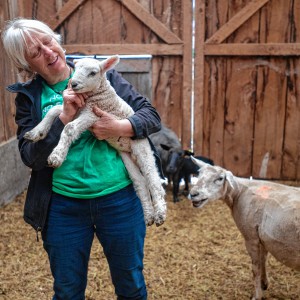 Valley Bounty: And on that farm she had a bit of everything: Little Brook Farm in Sunderland is a labor of love for farmer Kristen Whittle
Valley Bounty: And on that farm she had a bit of everything: Little Brook Farm in Sunderland is a labor of love for farmer Kristen Whittle Women’s history told through clothing: Shelburne Falls Area Women’s Club to host ‘Real Clothes, Real Lives: 200 Years of What Women Wore’ author, April 9
Women’s history told through clothing: Shelburne Falls Area Women’s Club to host ‘Real Clothes, Real Lives: 200 Years of What Women Wore’ author, April 9
